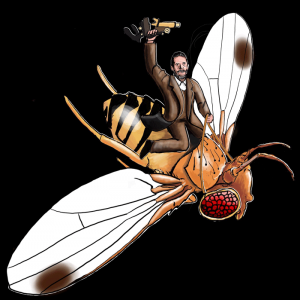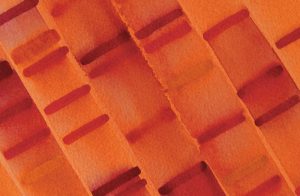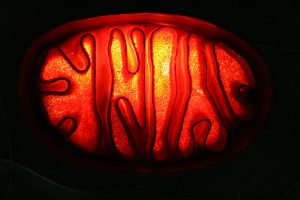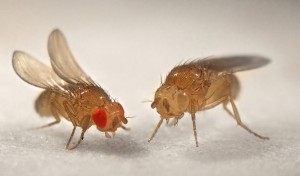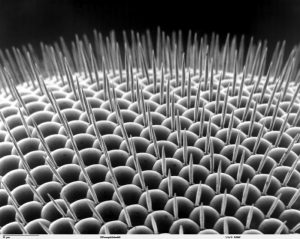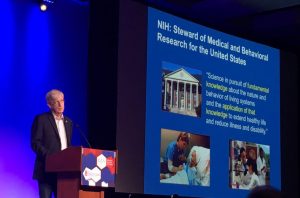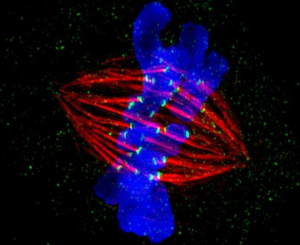Enter your address to receive notifications about new posts to your email.
Articles tagged Drosophila
(122 results)
-
Fruit fly feast: Preview of the Annual Drosophila Research Conference
Don’t miss out on this year’s Annual Drosophila Research Conference: The late abstract deadline is January 23, 2017 and the early registration discount ends February 3, 2017. Check out the fantastic lineup of invited speakers below! More details of the conference are available here, including details of special events like the PI Early Career Forum,…
-
Fly model of traumatic brain injury untangles factors tied to mortality
Each year, emergency departments in the US treat almost 700,000 people for traumatic brain injury (TBI). The outcome depends largely on the severity and location of the injury, but these aren’t the only factors. Age also plays a role, with children often recovering more fully than do adults. The patient’s diet following the injury may…
-
High Temperatures Suppress Seizures in a Fruit Fly Epilepsy Model
The human brain is an amazing machine powered by electricity. Carefully controlled patterns of changing electrical charges in neurons allow us to to think, move, and speak. When this system is disrupted, very bad things happen. A seizure occurs when a sudden surge of electrical activity in the brain interrupts normal functioning. Seizures are accompanied…
-
Happy 150th to a fruit fly wrangler who changed the world
In Kentucky 150 years ago today, a child was born who would—with the help of a hardy inhabitant of trash cans and fruit bowls— grow up to change the world. That boy was Thomas Hunt Morgan. By the 1900s, the energetic young Morgan had become a well-respected expert investigating questions in experimental embryology and animal regeneration.…
-
Hubby & Lewontin: Problems and Conversations
The beautiful cover of the August issue of GENETICS was created by artist Michele Banks to commemorate the fiftieth anniversary of a pivotal moment in the history of evolutionary biology: the 1966 publication of a pair of GENETICS papers using protein electrophoresis to reveal that natural genetic diversity is bountiful. Thanks to a conversation between…
-
#TAGC16 Shorts: Mitonuclear interactions
Guest post by Mathieu Hénault. #TAGC16 Shorts are brief summaries of presentations at The Allied Genetics Conference, a combined meeting of seven genetics research communities held July 13-17, 2016 in Orlando, Florida. Most traits are controlled by more than one gene, and interactions between the effects of genes (GxG) can modify phenotypes in a non-additive…
-
#TAGC16 Shorts: Gut microbes influence alcohol sensitivity
Guest post by Deepika Vasudevan. #TAGC16 Shorts are brief summaries of presentations at The Allied Genetics Conference, a combined meeting of seven genetics research communities held July 13-17, 2016 in Orlando, Florida. The microbes in our guts seem to affect almost every aspect of human health, from the obvious (e.g. metabolism1) to the unexpected (e.g.…
-
Why flies forget: a molecular look at long-term memory
Memory is a complex neurological process, and understanding its mechanics rarely yields clear-cut answers. So far, research on the memory-implicated gene HDAC4 has been no exception—in fact, HDAC4’s effects on long-term memory seem completely contradictory. Increased HDAC4 protein in the cell nucleus causes memory deficits, and consistent with this, a human mutation that resulted in…
-
#TAGC16 Shorts: evolution on ecological timescales
Guest post by Julia Kreiner. #TAGC16 Shorts are brief summaries of presentations at The Allied Genetics Conference, a combined meeting of seven genetics research communities held July 13-17, 2016 in Orlando, Florida. A common perception of evolution sees only slow and consistent genetic change over thousands of generations. But geneticists are increasingly shedding light on…
-
Policy Points: Collins reports model organism funding at TAGC16
Last week at The Allied Genetics Conference (TAGC), National Institutes of Health (NIH) Director Francis Collins provided an overview of model organism support from his agency. Collins used a new analysis performed by NIH staff to address concerns expressed by many of the model organism researchers gathered at TAGC, particularly a 2015 analysis by Michael…
-
Two-faced protein both speeds and slows cell cycle
Although some proteins have a single career, many—like Dis3—lead a double life. In the yeast Schizosaccharomyces pombe, loss-of-function mutations in dis3 cause defects in mitosis, implying that Dis3 normally supports cell cycle progression. But perplexingly, results in humans suggest that Dis3 normally slows cell cycle progression: mutations that partially disable dis3 contribute to the development…

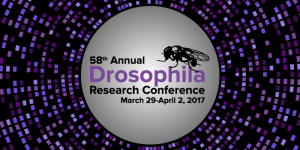
![Traumatic brain injury is a risk for those who participate in contact sports, such as boxing and Muay Thai. By Eric Langley [CC BY 2.0], via Wikimedia Commons.](https://s36063.pcdn.co/wp-content/uploads/2016/12/npjxWixCqK0OdXXC-pic-300x199.jpg)

